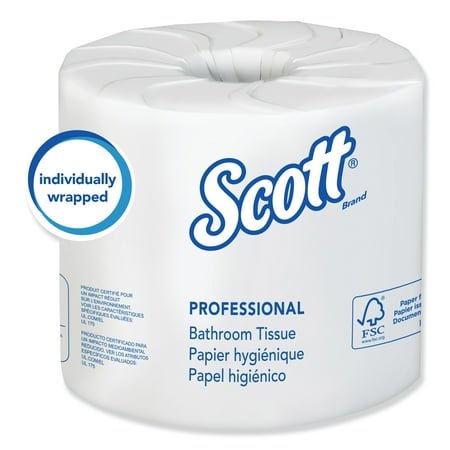Scott Essential Professional 100% Recycled Fiber Bulk Toilet Paper for Business (13217), 2-PLY Standard Rolls, White, 80 Rolls per Case, 506 Sheets per Roll
Keep your property, classroom or workplace toilet fully stocked with this Kimberly-Clark Professional Scott one hundred Percent Recycled Fiber Bathroom Tissue. It is manufactured from environmentally pleasant substances and carries no added chemicals, inks, dyes or fragrances. This two-ply tissue is personally wrapped for most effective hygiene and convenience. It is ideal in your high site visitors restroom desires. This box includes 80 rolls of bathroom tissue with 506 sheets per roll.





Kimberly-Clark Professional Scott a hundred% Recycled Fiber Two-Ply Bathroom Tissue, 506 sheets, eighty-Count:one hundred% recycled fiber contentMade from environmentally friendly materialsThis product is made from timber that came from an authorized controlled forest506, 2-ply sheets according to rollNo brought chemical compounds, inks, dyes or fragrancesScott emblem is the dependable and sensible desire for recycled tissueQuality meets practicalityPerformance and price on your budgetIncludes eighty for my part wrapped hygienic rollsKimberly-Clark tissue is right for domestic, workplace or study room useModel Number: 13217



Reviews
There are no reviews yet.